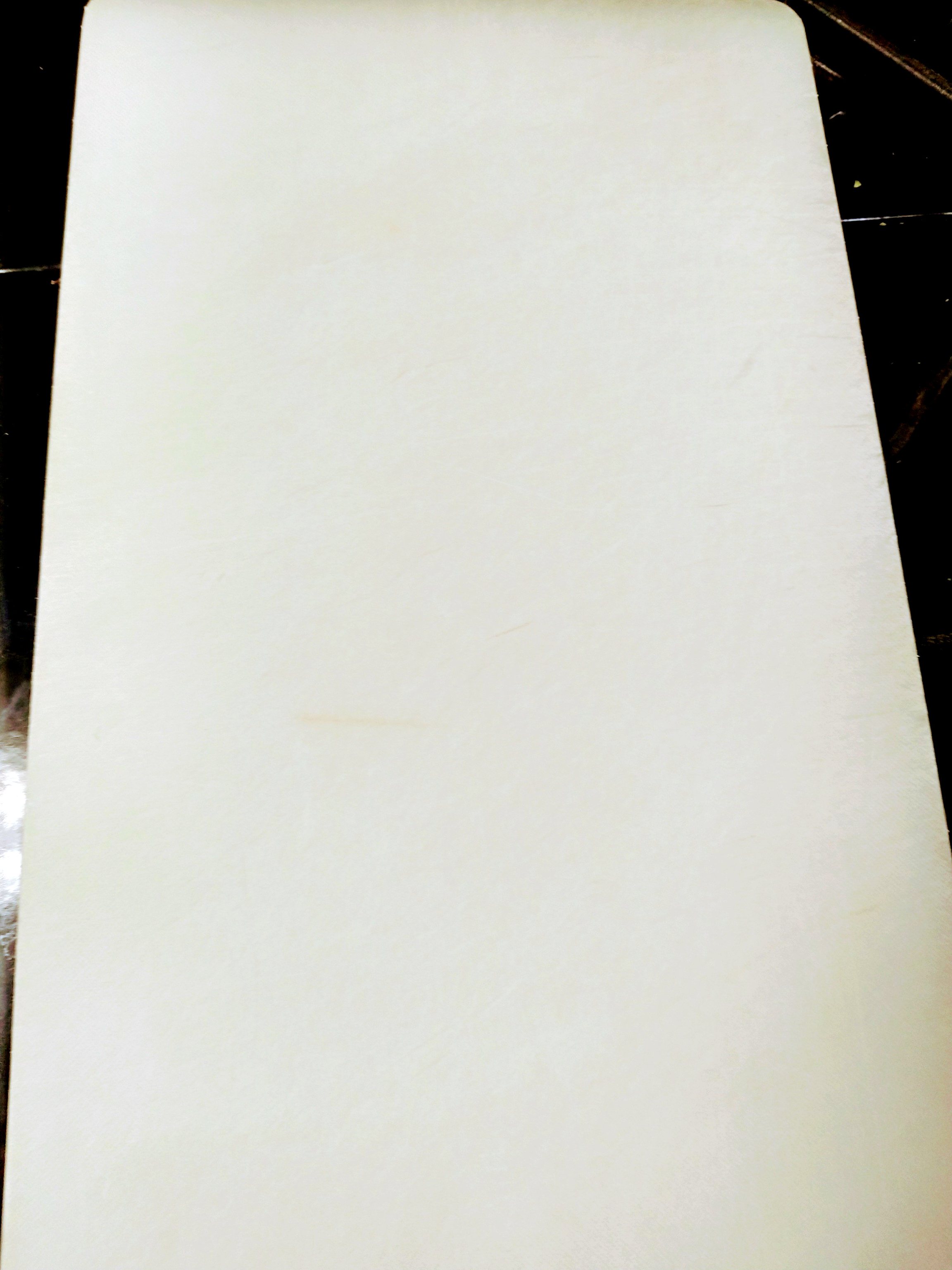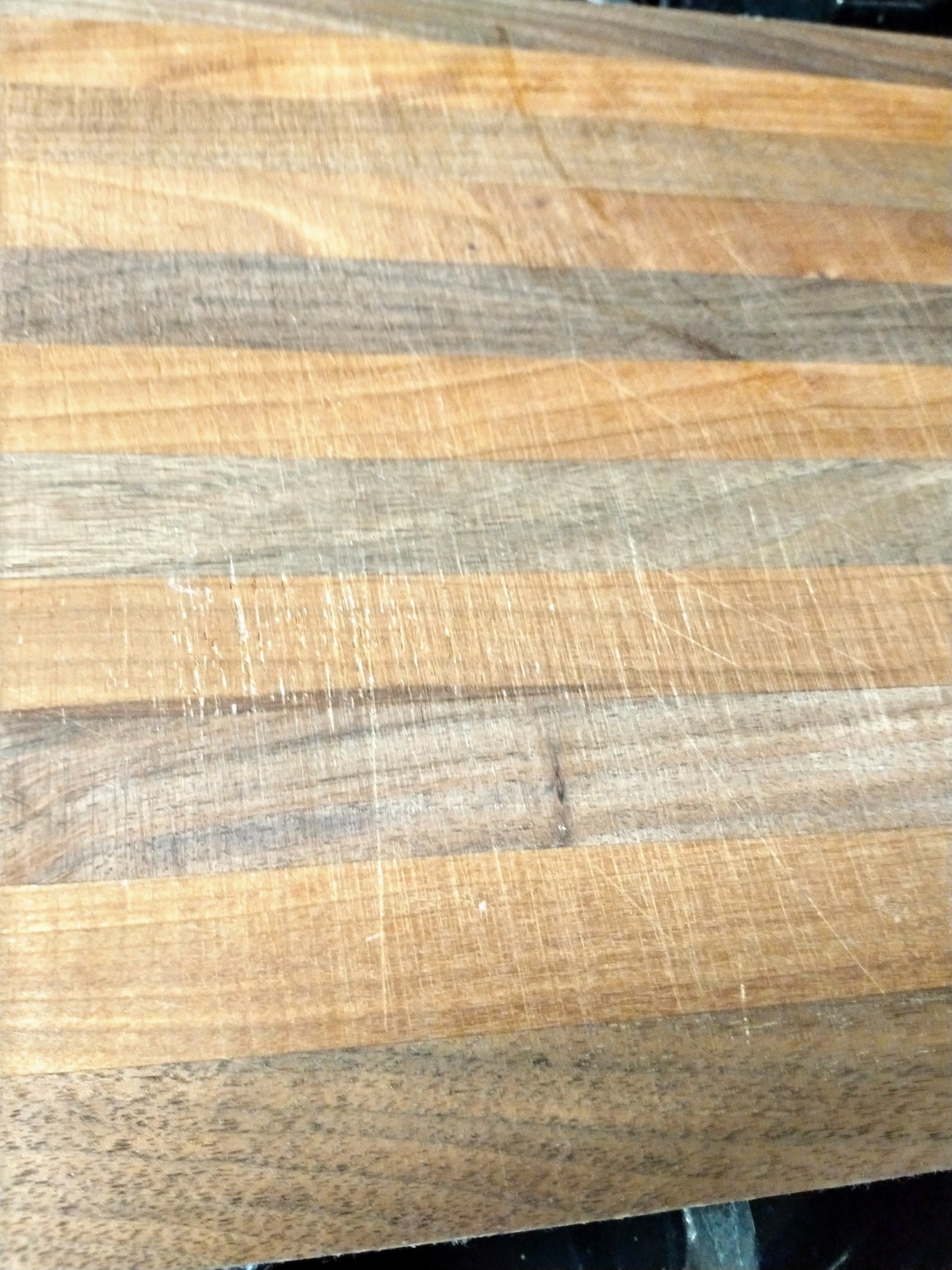I have stopped using wooden cutting board at all because I found insects would climb on it but I never find any on PP cutting board. However, looks like scratches and marks can easily leave on PP cutting board. Did I use wrong knife? Any particular kind of knife to be used to PP cutting board?
PP = Polypropylene
PP = Polypropylene



